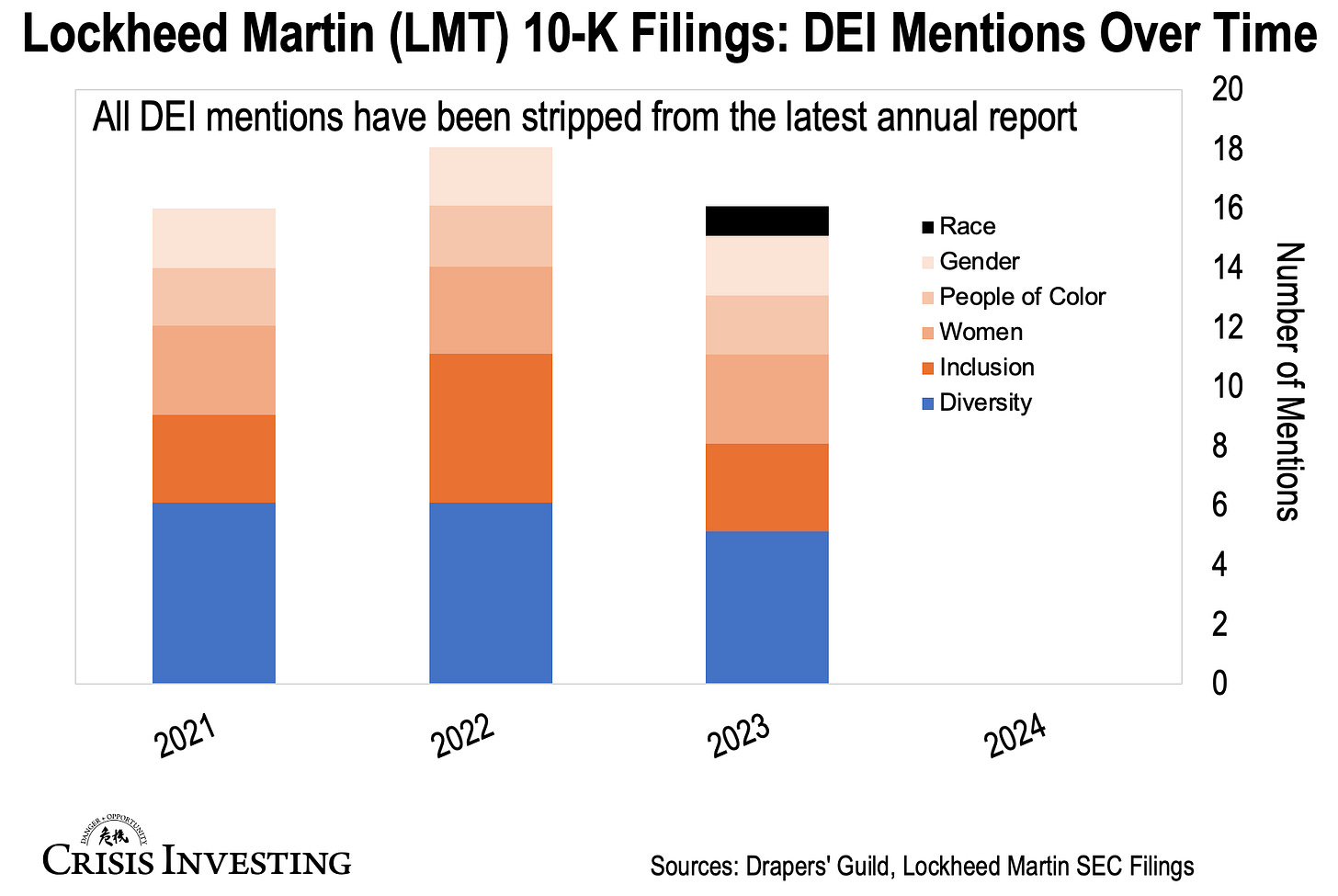The Pentagon’s Biggest Contractor Ditches DEI
Chart of the Week #43
Ah, Lockheed Martin (LMT)—America’s favorite war machine and one of the wokest giants in the industry.
This is the same company that, just a few years ago, sent its white male executives to three-day “diversity training” sessions to confront their “white privilege” and dismantle their “white male culture.”
Yes, you read that right. Lockheed Martin—the maker of the F-35 fighter jet—had its leadership sit through exercises linking “white men” to words like “old,” “racist,” “privileged,” and even “KKK.” The training, run by White Men As Full Diversity Partners, even suggested that traits like “hard work” and a “can-do attitude” were problematic.
But times are a-changing. As this week’s chart shows, DEI (Diversity, Equity, and Inclusion) mentions in Lockheed Martin’s corporate filings have disappeared entirely in 2024—dropping from 18 in 2022, to 16 in 2023, to zero. Take a look below.
The timing is no coincidence. Just last month, Lockheed Martin scrapped all DEI initiatives, dropping demographic representation goals and DEI-focused training. Talk about a full 180.
What makes Lockheed Martin’s case stand out is its status as a major federal contractor—in fact, it’s the largest military contractor in the U.S., pulling in tens of billions from the government. When a company this deeply embedded in the system walks away from DEI, it’s a clear sign of the shifting tides.
And the broader trend backs it up. As I told you in November, the Russell 3000 companies’ wokeness chatter had already faded back to pre-2020 levels. Amazon, Meta, Walmart, and even Target have all quietly scaled back their DEI initiatives.
And what's particularly telling is the speed of this reversal. Just three years ago, in the wake of George Floyd's death, corporate America couldn't pledge its commitment to DEI fast enough. Now, those same companies are running for the exits.
Let’s hope it’s for good—that DEI is finally on its deathbed.
Hope this adds a small reason to make your weekend better!
Lau Vegys



Getting goosebumps already!
How much did dei cost lockheed's share holders?